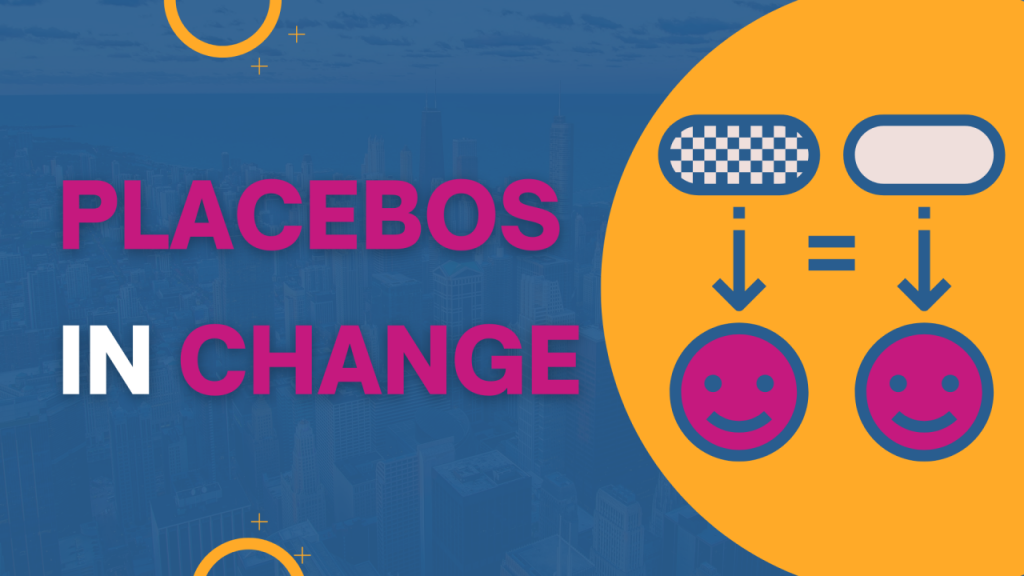
In the medical world, the placebo effect is well-known for demonstrating how positive expectations can lead to real improvements in health. Interestingly, this psychological phenomenon has significant implications for change management. By understanding and utilizing the placebo effect within organizational change initiatives, leaders can profoundly influence how changes are perceived and embraced by their teams. Let us explore how setting positive expectations can enhance the effectiveness of change efforts and lead to better outcomes.
Scientifically proven: the Placebo Effect
The placebo effect occurs when individuals experience a real change in their condition simply because they believe they are receiving an effective intervention. In the context of organizational change, this translates to employees performing better and adapting more readily when they expect that the changes being implemented will benefit them. The key is the power of belief.
Implications for Change Management
1. Creating Positive Expectations:
Strategic Communication: Effectively communicating the benefits and potential positive outcomes of the change is crucial. It’s not enough to inform staff about what will change; explaining how these changes will make their work easier, more enjoyable, or more rewarding can create a mindset that leads to a more successful outcome.
Leadership Endorsement: When leaders openly express their positive expectations and belief in the benefits of the change, this attitude can trickle down through the organization, enhancing employee buy-in and participation.
2. Training and Development:
Empowering Training Programs: Introduce new skills and processes with an emphasis on their effectiveness and benefits. By conducting empowering training sessions that not only teach but also boost confidence in the new abilities, employees are likely to feel more competent and motivated.
3. Cultivating a Culture of Positivity:
Promoting Success Stories: Share examples of early adopters who have benefited from the change. Success stories and testimonials can serve as powerful motivators, reinforcing the belief in the positive aspects of the change initiative.
4. Feedback and Reinforcement:
Continuous Positive Feedback: Regularly provide positive feedback and highlight how changes are leading to improvements, even small ones. This reinforces the belief that the change is effective and encourages continued effort and adaptation.
Example: Consider the introduction of a new technology system intended to streamline operations. By framing the technology as value-adding, productivity-enhancing or workload-reducing you are setting the stage for a positive reception. Throughout the rollout, regular updates celebrating milestones and positive feedback from users further reinforce this narrative, leveraging the placebo effect to boost user engagement and satisfaction.
Just as the placebo effect can enhance outcomes in clinical settings, so too can it facilitate successful change in organizations. By carefully crafting the narrative around change initiatives and fostering an environment of positive expectations, change managers can significantly enhance the effectiveness of their efforts. Remember, the belief in the benefit of a change can sometimes be as powerful as the change itself.
Have you observed or used the placebo effect in your change management practices? How do you create and maintain positive expectations among your teams during times of change?
#ChangeManagement #Leadership #OrganizationalDevelopment #PositivePsychology
This is a copy of the same post on my LinkedIn blog. To comment and join the discussion on this topic switch to LinkedIn. Follow me for regular updates and blog articles: https://www.linkedin.com/in/drnilskoenig/
